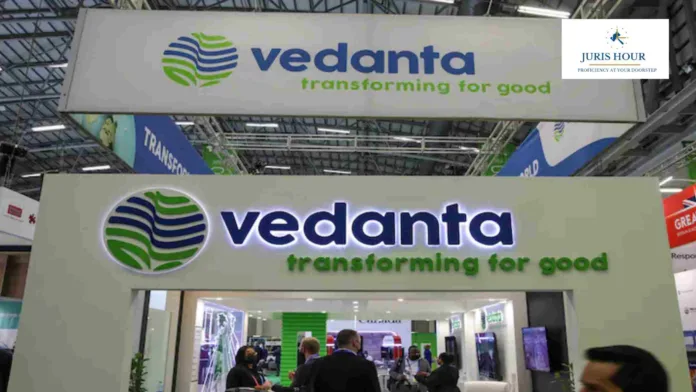The Chennai Bench of Customs, Excise and Service Tax Appellate Tribunal (CESTAT) has denied Vedanta the interest on Rs. 7.12 crore customs refund.
The bench P. Dinesha (Judicial Member) and M. Ajit Kumar (Technical Member) has observed that upheld the earlier appellate order that denied Vedanta interest on the refunded amount, concluding that the customs department acted within the legally prescribed time limits.
The appellants/assessee filed 67 refund claims during the period from August 2013 to November 2013 for an amount of Rs.7,61,48,316/- being the excess duty paid as per the orders of finalization of provisional assessments. After finalization of the provisional assessment, the adjudicating authority issued Order in Original for each In-bond Bills of Entry on different dates, mentioning the refundable excess paid duty amount and that the appellants are eligible for the refund of that excess paid amount.
In the meanwhile, the department directed the appellants to submit the original importer copies of Ex-bond bills of entry and Chartered Accountant’s certificate on unjust enrichment. Accordingly, after due process of law, the adjudicating authority sanctioned the refund of Rs.7,12,70,639/- with respect to 67 refund claims filed between 29.05.2007 and 26.05.2013 on 30.9.2014. He, however, did not order payment of any interest. Aggrieved by the non-sanction of refund in the adjudication order, the appellant filed an appeal before the Appellate Authority. The Appellate Authority rejected the appeal.
Section 18 and Section 27 of the Customs Act, 1962 are independent to one another and operate in different fields. Reading Section 18 along with Section 27 ibid. is totally untenable. Sub-section 18(2)(a) clearly provides for suo moto refund to the assessee if, on finalization of the assessments, it is found that the assessee has paid duty in excess to what it was required to pay.
Likewise, the sub-section also entails suo moto liability upon the assessee in case the duty paid is found to be short paid on finalization. In consonance thereof, sub-section (3) and (4) provides for payment of interest on any short duty paid or on admissible refund, as the case may be. Sub-section (4) clearly stipulates that the relevant date for the purpose of computing such interest is the last date of the third month from the date of the order of final assessment.
Vedanta argued that under Section 18(4) of the Customs Act, 1962, they were entitled to interest since the refund was not made within three months of final assessment. Their counsel emphasized that the provisions of Section 18 operate independently of Section 27, which outlines the procedure for claiming refunds, and therefore, interest was automatically applicable after the specified time.
The department contended that the refund claim was defective and only considered complete once all required documents—including Chartered Accountant’s certificate and indemnity bonds—were submitted by Vedanta. Citing this, the department argued that the refund was sanctioned within three months of receiving the complete claim and thus, no interest liability arose.
The tribunal held that the importer cannot be permitted to take undue advantage of lapses on his part in not submitting complete documentation. The Department’s action was within the legal time frame once the final reply was received.
Case Details
Case Title: Vedanta Limited Versus Commissioner of Customs (Import)
Case No.: Customs Appeal No.40724 of 2015
Date: 20.06.2025
Counsel For Appellant: Akshit Malhotra
Counsel For Respondent: Anandalakshmi Ganeshram
Read More: DRI Arrests Trader for Evading Rs 42 Crore Customs Duty on Walnut Imports

